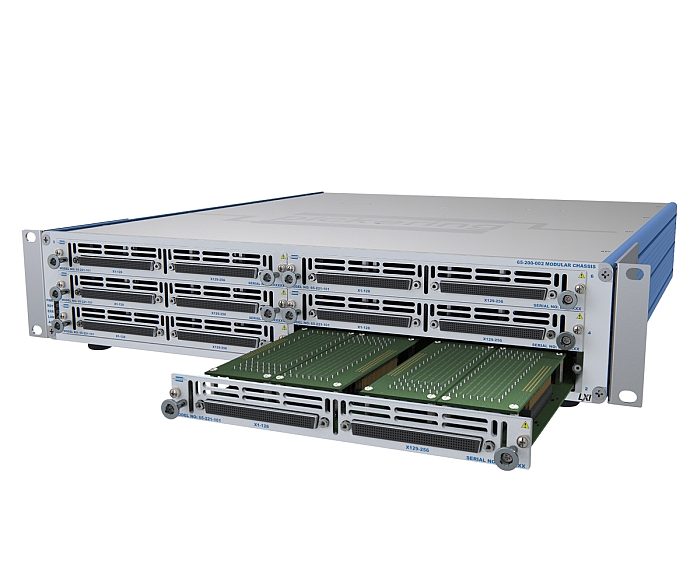- Pickering Interfaces, provider of modular signal switching and simulation for electronic test and verification, will be introducing their new High-Density Modular LXI Ethernet Reed Relay Matrices at IEEE Autotestcon in Schaumburg, IL, September 12-14, 2017.
The new Modular LXI Matrix Reed Relay Modules (model 65-22x) were originally designed to test Semiconductors at wafer and package levels (LXI for LAN eXtension for Instrumentation). The Reed Relay Matrix solution combines Pickering’s LXI Modular Chassis (model 65-200) with their new plug-in matrix module range, providing access to all signal connections on 200 pin connectors. The plug-in modules are constructed using Pickering Electronics’ Reed Relays.
The range includes four plug-in models covering matrices of up to 1,536×4 in increments of 128 (model 65-221), 768×8 in increments of 64 (model 65-223), 384×16 in increments of 32 (model 65-225), and 192×32 in increments of 32 (model 65-227). Users can specify as many or as few plug-in modules (up to six) required and can field upgrade the chassis to extend the matrix when necessary. Over 1,500 relays can be closed simultaneously for specific conditions for parametric testing.
These plug-in matrices also offer built-in scan list sequence stores with triggering capability, providing users with the ability to set a series of pre-determined sequences on a LXI instrument, the sequences can be triggered by software or one of the sixteen DIO software configurable open collector triggers. They also feature multi-bus capability for parallel testing.
The range includes Pickering’s Built-in Relay Self-Test (BIRST) and is also supported by their eBIRST Switching System Test Tools. These tools provide a quick way of finding relay failures within the modules.
Besides Semiconductor testing, applications can be found in several other industries, for example, the functional verification of automotive ECU’s.






